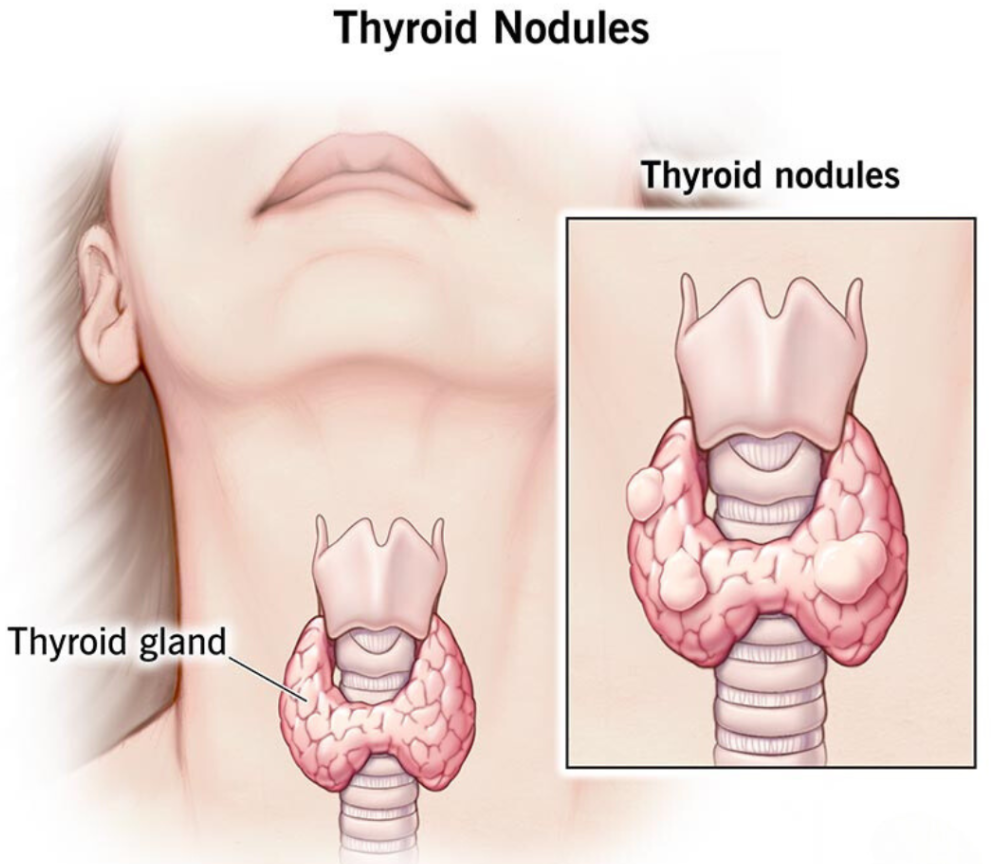How Thyroid Affects Fertility and Hormones: What to Know
Introduction
Thyroid disorders, such as hypothyroidism and hyperthyroidism, are common health conditions that can greatly affect fertility and the ability to conceive. The thyroid gland plays a vital role in producing hormones that regulate metabolism and influence many essential functions, including reproductive health.
In this article, we will explore how thyroid imbalances can impact fertility, the symptoms to watch for, diagnostic methods, and how expert care at Lakshmi Fertility Centre in Karaikudi can support couples in overcoming these challenges.

What is the Thyroid and How Does It Affect Fertility?
The thyroid is a small gland located in the neck, responsible for producing thyroid hormones – triiodothyronine (T3) and thyroxine (T4) – which regulate metabolism and energy levels. These hormones are essential for numerous bodily functions, including the regulation of the menstrual cycle and ovulation.
At Lakshmi Fertility Centre, we understand the connection between thyroid health and fertility. Our experts provide personalized care to help individuals with thyroid disorders manage their conditions while improving their chances of conception. Whether you’re dealing with hypothyroidism or hyperthyroidism, the right treatment can help restore balance and enhance your fertility.
Hypothyroidism and Its Impact on Fertility
Hypothyroidism is a condition where the thyroid does not produce enough thyroid hormones, leading to various fertility-related issues. The fertility specialists at Lakshmi Fertility Centre work with patients to manage hypothyroidism effectively, using targeted treatments and monitoring to optimize fertility outcomes.
Menstrual Irregularities
- Hypothyroidism can lead to irregular periods, which complicates ovulation and conception. Women may experience heavy or missed periods, reducing the predictability of ovulation.
Ovulation Problems
- Since hypothyroidism disrupts the production of reproductive hormones, women may experience anovulation - a condition where the ovaries do not release an egg. Treatment options, including levothyroxine therapy, are offered at Lakshmi Fertility Centre to stabilize thyroid hormone levels and restore ovulation.
Miscarriage Risk
- Low thyroid hormone levels can increase the risk of miscarriage. Our specialists closely monitor thyroid function throughout pregnancy to prevent complications and ensure a healthy pregnancy.
Hyperthyroidism and Fertility Challenges
Hyperthyroidism occurs when the thyroid produces excessive thyroid hormones, which can also affect fertility. At Lakshmi Fertility Centre, we offer advanced treatments to control hyperthyroidism and improve fertility outcomes.
Ovulation Disorders
- Hyperthyroidism can disrupt ovulation, causing irregular cycles or a complete absence of ovulation. Our fertility specialists provide personalized care to address this issue, ensuring the proper hormonal environment for conception.
Early Pregnancy Loss
- If left untreated, hyperthyroidism can lead to an increased risk of early pregnancy loss. At Lakshmi Fertility Centre, we closely monitor thyroid function during pregnancy and use appropriate treatments to minimize the risk of miscarriage and ensure the best chances for a healthy pregnancy.
Decreased Libido and Sexual Dysfunction
- Symptoms of hyperthyroidism, such as fatigue, anxiety and mood swings, can also affect sexual desire. We address these symptoms by offering holistic care to improve both thyroid function and sexual health.
For more in-depth information, refer to the American Thyroid Association’s comprehensive guide on hyperthyroidism.
How to Diagnose Thyroid Disorders in Women Trying to Conceive
If you suspect that a thyroid disorder may be affecting your fertility, it’s important to undergo diagnostic testing. At Lakshmi Fertility Centre, we offer comprehensive fertility testing that includes evaluating thyroid function. The following tests are commonly used to diagnose thyroid disorders:
- TSH (Thyroid Stimulating Hormone): Elevated or reduced levels of TSH are a key indicator of thyroid dysfunction.
- Free T4 and Free T3: These tests measure the active thyroid hormones in your blood and provide insight into thyroid health.
If your thyroid levels are imbalanced, our specialists will recommend appropriate treatment to help you achieve a healthy pregnancy.
Treatment Options for Thyroid Disorders and Fertility
Both hypothyroidism and hyperthyroidism are treatable conditions. At Lakshmi Fertility Centre, we provide tailored treatment plans to address thyroid imbalances and improve fertility outcomes. Here are the most common treatment options:
Treatment for Hypothyroidism
- Levothyroxine: This is a synthetic thyroid hormone used to normalize thyroid function. Once thyroid levels are stabilized, fertility can improve, and women are more likely to ovulate regularly.
- Fertility Treatments: If conception does not occur naturally, assisted reproductive technologies like IVF and IUI are available at Lakshmi Fertility Centre. Our fertility specialists will help you determine the best course of action.
Treatment for Hyperthyroidism
- Antithyroid Medications: Medications like methimazole or propylthiouracil are prescribed to reduce excess thyroid hormone production and restore balance.
- Radioactive Iodine: For more severe cases, radioactive iodine treatment may be recommended to shrink the thyroid and reduce hormone levels.
- Surgery:In rare cases, thyroid surgery may be necessary.
At Lakshmi Fertility Centre, we provide ongoing care and monitor thyroid levels to ensure that fertility treatments like IVF, IUI, and ICSI (Intracytoplasmic Sperm Injection) are as effective as possible.
Success Rates of Fertility Treatments
At Lakshmi Fertility Centre, we believe in the power of personalized care to improve fertility outcomes for individuals with thyroid disorders. Here’s a look at the success rates for some of our fertility treatments:
- IVF: The success rate of IVF is around 40-45% for women under 35. With thyroid disorders managed effectively, these success rates remain comparable to those of women without thyroid issues.
- IUI: The success rate of IUI typically ranges from 10-20%. Thyroid management plays a crucial role in improving success rates.
- ICSI: This advanced form of IVF can help individuals with male fertility issues. When thyroid levels are controlled, the chances of success increase.
Lifestyle Modifications and Thyroid Health
In addition to medical treatments, lifestyle changes can help manage thyroid health and improve fertility. At Lakshmi Fertility Centre, we work with our patients to implement these changes:

- Balanced Diet: A diet rich in nutrients such as iodine, selenium, and zinc is essential for optimal thyroid function.
- Stress Management: Chronic stress can exacerbate thyroid problems, so we recommend techniques like yoga, meditation, and breathing exercises to help reduce stress levels.
- Exercise: Regular, moderate physical activity can help maintain healthy thyroid function and support overall health.
Frequently Asked Questions
1. Can thyroid problems cause infertility?
Yes, thyroid problems, including hypothyroidism and hyperthyroidism, can interfere with ovulation and menstrual cycles, making it harder to conceive.
2. What is the best treatment for hypothyroidism and infertility?
Levothyroxine, a synthetic thyroid hormone, is commonly prescribed to treat hypothyroidism and restore normal thyroid function, improving fertility.
3. Can hyperthyroidism cause infertility in men?
Yes, hyperthyroidism can lower sperm count and motility, affecting male fertility.
4. How long does it take to conceive after thyroid treatment?
Many women conceive within a few months of normalizing their thyroid levels, but the time may vary depending on individual factors.
5. Are there any risks associated with untreated thyroid disorders during pregnancy?
Untreated thyroid disorders can increase the risk of miscarriage, preterm birth, and developmental issues for the baby.
Conclusion
Thyroid disorders, whether hypothyroidism or hyperthyroidism, can significantly affect fertility and make conception more challenging. However, with proper treatment and monitoring, many individuals with thyroid disorders can successfully conceive.
At Lakshmi Fertility Centre, we specialize in managing thyroid-related fertility issues and provide a full range of fertility treatments to help you achieve your goals. If you suspect that thyroid problems are affecting your fertility, Book a consultation today and take the first step toward your parenthood journey with confidence and support.
